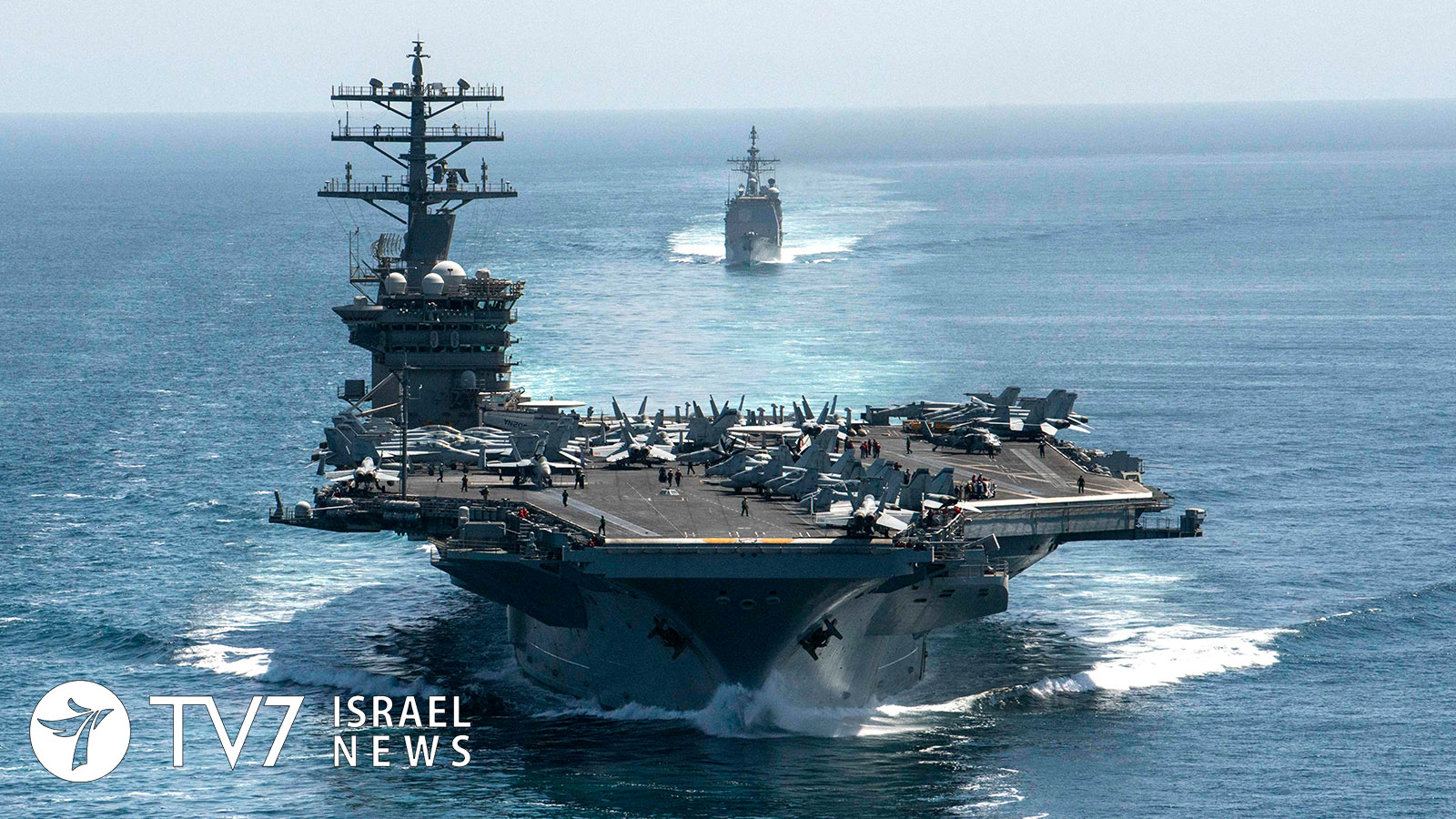A United States Coast Guard ship fired about 30 warning shots after 13 vessels from Iran’s Islamic Revolutionary Guard Corps Navy (IRGCN) came close to it and other American Navy vessels in the Strait of Hormuz, the Pentagon said on Monday.
According to a statement TV7 obtained from the United States 5th Fleet Public Affairs Office, a group of 13 Fast In-shore Attack Craft (FIAC) speedboats armed with machine guns operated by Iran’s Islamic Revolutionary Guard Corps Navy (IRGCN) “conducted unsafe and unprofessional maneuvers and failed to exercise due regard for the safety of US forces as required under international law while operating in close proximity to US naval vessels transiting the Strait of Hormuz.”
The IRGCN FIAC made a high-speed approach on the US Navy guided-missile cruiser USS Monterey (CG 61), patrol coastal ships USS Thunderbolt (PC 12), USS Hurricane (PC 3) and USS Squall (PC 7), Coast Guard patrol boats USCGC Wrangell (WPB 1332) and USCGC Maui (WPB 1304), which were escorting the guided-missile submarine USS Georgia (SSGN 729) as it was transiting on the surface.
“Two of the 13 IRGCN vessels broke away from the larger group, transited to the opposite side of the U.S. formation and approached Maui and Squall from behind at a high rate of speed (in excess of 32 knots) with their weapons uncovered and manned. The remaining 11 FIAC maintained position which places the formation of the U.S. ships in between the two IRGCN groups,” said the US statement.
Multiple US warnings aimed at de-escalating the situation and ensure the safety of all ships and personnel issued to the IRCGN vessels included “repeated bridge-to-bridge verbal warnings, five acoustic device warnings, and five short blasts of the ship’s horn, the internationally recognized danger signal outlined in the International Regulations for Preventing Collisions at Sea (COLREGs).”
The US Coast Guard cutter Maui “exercised lawful de-escalatory measures by firing warning shots” from a .50-caliber machine gun at 2 of the IRGCN vessels that refused to respond to the warnings and approached at fast speed within 300 yards of the US ship at an “unnecessarily close range that put the ships and their crews in immediate danger.” The Maui fired additional shots after the Iranian ships closed to within 150 yards.
The Iranian vessels subsequently withdrew from the area.
“As professional mariners, we expect the IRGCN to operate with due regard for the safety of all vessels as required by international law,” stressed the 5th Fleet statement, underscoring that, “Our Navy will continue to fly, sail and operate anywhere international law allows while promoting the rules-based international order throughout the region. In support of international norms, the U.S. is not an aggressor; our naval forces remain postured in a non-provocative manner that exemplifies professionalism, incentives adherence to international law and customs, and persuades others to emulate our actions. Our forces are trained, however, to conduct effective defensive measures when necessary.”
The incident marks the second time within the last month that US military vessels have had to fire warning shots due to unsafe behavior by Iranian vessels in the region, after a relative lull in such interactions over the past year.
Pentagon Spokesman John Kirby referred to the latest confrontation as “significant,” saying that the number of IRGCN vessels “acting very aggressively” was larger than in the recent past.
The escalation in maritime tensions come as world powers and Iran have been trying to accelerate efforts to bring Washington and Tehran back into compliance with the 2015 Joint Comprehensive Plan of Action (JCPOA) nuclear accord.
American returned to Vienna last week for a 4th round of indirect talks with Iran on how to revive the JCPOA, from which former US President Donald Trump withdrew in 2018, prompting Iran to openly violate terms of the pact.
